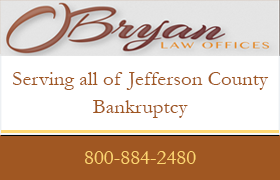Louisville Reorganization Lawyer, Kentucky
-
Sponsored Law Firm
-
 x
x

Click For More Info:
-
Obryan Law Offices
9311 Preston Hwy Louisville, KY 40229» view mapBankruptcy Lawyers That Fight For You
Obryan Law Offices has helped thousands of families restore peace and order to their lives. Call us today!
800-884-2480
Not enough matches for Louisville Reorganization lawyer.
Below are all Louisville Bankruptcy & Debt lawyers.
Richard A. Schwartz
Workout, Consumer Bankruptcy, Commercial Bankruptcy, Bankruptcy
Status: In Good Standing
FREE CONSULTATION
CONTACTFREE CONSULTATION
CONTACTLeeann Thornhill
Foreclosure, Garnishment, Commercial Bankruptcy, Bankruptcy
Status: In Good Standing
Dawn R. Elliott
Adoption, Alimony & Spousal Support, Bankruptcy, Child Support
Status: In Good Standing
FREE CONSULTATION
CONTACTRobert W. Riley
Bankruptcy, Family Law, Medical Malpractice, Personal Injury
Status: In Good Standing
FREE CONSULTATION
CONTACTMichael W. McClain
Business Organization, Products Liability, Collection, Banking & Finance
Status: In Good Standing
FREE CONSULTATION
CONTACT
 Julie Obryan Jefferson, KY
Julie Obryan Jefferson, KY About UsObryan Law Offices
About UsObryan Law Offices FAQFrequently Asked Questions
FAQFrequently Asked Questions
